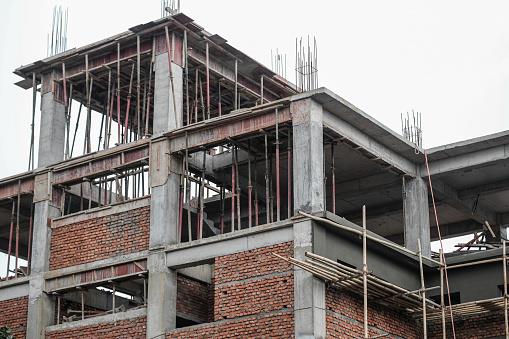
CREDAI Maharashtra vocally opposed the proposed 1% metro surcharge on property purchases in Pune, Mumbai, Thane, and Nagpur, which is set to take effect on April 1. The organization urged the government to rethink this measure.
In light of escalating prices for essential raw materials, such as cement and steel, real estate developers in Maharashtra are contemplating a slowdown in their procurement of materials and halting construction activities across their sites. In a bid to navigate this challenging situation, the developers have made a formal request to the MahaRERA (Maharashtra Real Estate Regulatory Authority), seeking an extension of at least six months for the completion deadlines of ongoing projects. This pause would allow the industry time to reassess and wait for material prices to stabilize.
Projects May Be Paused or Delayed
Despite the resilience demonstrated by the real estate sector during the pandemic, the industry now grapples with the effects of surging costs that threaten to derail progress. The sector had previously benefitted from reduced stamp duty, low mortgage rates, and supportive developer agreements, and thus, real estate continues to be a significant employer in India. However, without timely government intervention, the ongoing price surge could lead to an indefinite halt, causing substantial implications for both consumers and the workforce involved in construction.
Currently, around 10,000 construction sites scattered across Maharashtra engage about 1 million workers. Any imminent delays in operations will directly impact these workers, potentially resulting in a minimum postponement of six months for scheduled projects.
Recent data illustrates a dramatic rise in building material costs: steel prices soared from Rs 42,000 per tonne to approximately Rs 84,800, while cement saw an increase from Rs 260 to Rs 400 per bag of 50 kg. Additionally, the cost for 4-inch bricks escalated from Rs 6,500 to Rs 8,000 per thousand units, with similar spikes noted for sand and wash sand. Other essential supplies, like electrical cables, tiles, plumbing fixtures, and secondary minerals, have also seen price escalations ranging from 40% to 45%, as indicated by industry stakeholders.
Call for Government Action
CREDAI Maharashtra, through its various affiliated city associations, has previously engaged with Deputy Chief Minister and Finance Minister Ajit Pawar, alongside Revenue Minister Balasaheb Thorat, to address urgent matters needing governmental intervention amidst the pandemic. Moreover, the association has strongly criticized the proposed 1% metro surcharge on property transactions within Pune, Mumbai, Thane, and Nagpur, reiterating its request for governmental reconsideration.
Price Exceeding Affordability
CREDAI Maharashtra’s President, Sunil Furde, remarked, “Prices of steel, cement, and other building materials have increased markedly over the last two years. They have now risen to a level that many developers find unaffordable, particularly in Tier II and Tier III cities. Consequently, the association representing 61 member cities under CREDAI Maharashtra is left with no option but to temporarily suspend purchases and cease construction work.”
Some recent climbs in material prices may stem from the ongoing conflict in Russia and Ukraine. Over 60 departments of CREDAI Maharashtra have urged both governmental and regulatory bodies to investigate the recent trends in construction materials pricing, analyzing whether these shifts are organic or the result of price-fixing and profiteering practices.
The rise in critical building materials—steel, cement, bricks, sand, electrical cables, tiles, plumbing fixtures, and more—has increased anywhere from 40% to 45%. Consequently, this inflation is reflected in access costs, estimated at around Rs 400-600 per square foot, which is anticipated to particularly burden home buyers in the affordable housing market.
Also read:
MahaRERA website set to display complaints on promoters and projects
MahaRERA issues warrants for Rs 633 crore against errant builders